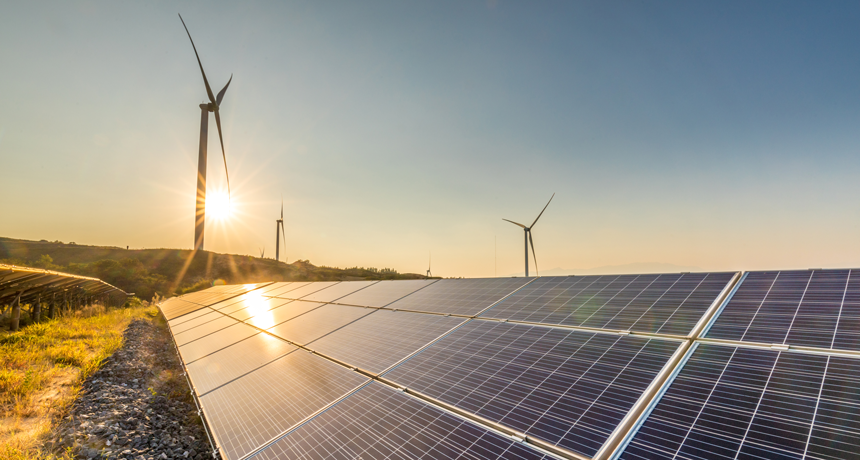battery A device that can convert chemical energy into electrical energy.
electricity A flow of charge, usually from the movement of negatively charged particles, called electrons.
joule The amount of energy needed to produce one watt for one second. Joule is a standard unit of energy.
mass A number that shows how much an object resists speeding up and slowing down — basically a measure of how much matter that object is made from.
physics The scientific study of the nature and properties of matter and energy. Classical physics is an explanation of the nature and properties of matter and energy that relies on descriptions such as Newton’s laws of motion. Quantum physics, a field of study that emerged later, is a more accurate way of explaining the motions and behavior of matter. A scientist who works in such areas is known as a physicist.
watt A measure of the rate of energy use, flux (or flow) or production. It is equivalent to one joule per second. It describes the rate of energy converted from one form to another — or moved — per unit of time. For instance, a kilowatt is 1,000 watts, and household energy use is typically measured and quantified in terms of kilowatt-hours, or the number of kilowatts used per hour.








